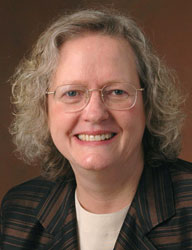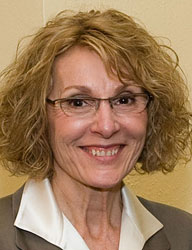Deans’ Message
Hello, everyone,
Advances in Purdue engineering research are amazing windows to our future.
With intelligent algorithms, civil engineering researcher Shirley Dyke is revolutionizing the way engineers collect and analyze structural-damage data after a natural disaster. She and her team are developing algorithms to recognize and classify damage in a fraction of the time it takes humans. By shifting time-consuming pattern recognition work to computers, Dyke’s work will enable humans to perform more quickly the complex task of analyzing structural problems and ultimately designing buildings that are more resistant to earthquake and wind damage.
Imaging systems of the future will enable us to explore previously hidden aspects of human biology. Biomedical engineer and microscopy researcher Fang Huang is developing “super-resolution” technology that can reveal objects smaller than the wavelength of light, such as the inner workings of living cells, in real time. This capability will lead to breakthroughs in medical diagnoses and treatments.
Many futuristic innovations will impact our daily lives by the end of the decade. Our preeminent team on efficient spectrum usage, led by David Love in the School of Electrical and Computer Engineering, is hard at work designing the millimeter-wave networks on which 5G wireless communications will depend. Wireless, cloud-based communications will also be the backbone of a world that depends on automated transport. Mechanical engineering researcher Greg Shaver is leading a team of Purdue engineers and trucking industry partners on a project that aims to automate over-the-road trucking, saving energy while increasing safety.
And then there’s rocket science. Alumnus Brandon Terry, as a PhD candidate and postdoctoral researcher in aeronautics and astronautics, developed a radical new formulation for solid rocket propellant. His energy-efficient, environmentally friendly fuel propelled him from grad school straight into forming his own company, which could ultimately make an important contribution to space flight.
We hope you are as excited by these engineering breakthroughs as we are.
Yours in engineering research,

The John A. Edwardson Dean of Engineering
Ransburg Distinguished Professor of Electrical and Computer Engineering

Associate Dean of Engineering for Research
Professor of Agronomy, Civil, and Electrical and Computer Engineering
Chair of Excellence in Earth Observation
Discovery: Innovation@Purdue Engineering, is a Purdue College of Engineering publication that focuses on advances in research. The quarterly e-publication features recent research achievements in the College and highlights faculty and student research, including collaborations with international partners. Significant initiatives in engagement with industry and in translating research to practice will also be spotlighted.